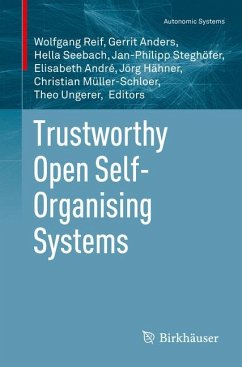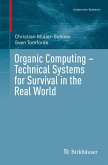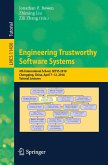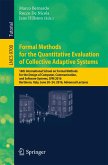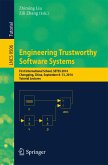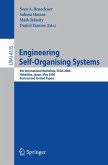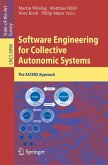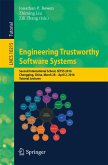These systems are composed of technical and human constituents that interact with each other in an open environment. Heterogeneity, large scale, and uncertainty in the behaviour of the constituents and the environment are the rule rather than the exception.
Ensuring the trustworthiness of such systems allows their technical constituents to interact with each other in a reliable, secure, and predictable way while their human users are able to understand and control them.
"Trustworthy Open Self-Organising Systems" contains a wealth of knowledge, from trustworthy self-organisation mechanisms, to trust models, methods to measure a user's trust in a system, a discussion of social concepts beyond trust, and insights into the impact open self-organising systems will have on society.
Dieser Download kann aus rechtlichen Gründen nur mit Rechnungsadresse in A, B, BG, CY, CZ, D, DK, EW, E, FIN, F, GR, HR, H, IRL, I, LT, L, LR, M, NL, PL, P, R, S, SLO, SK ausgeliefert werden.

